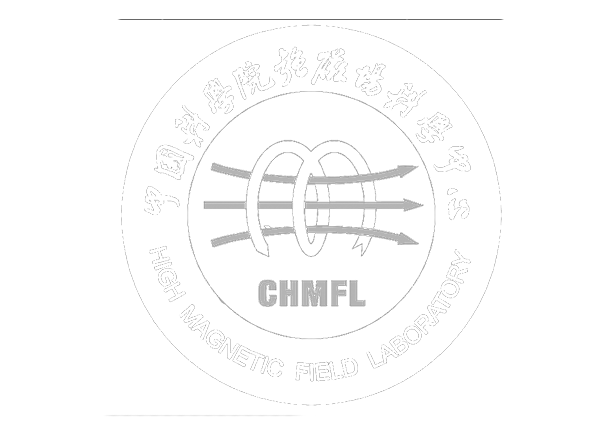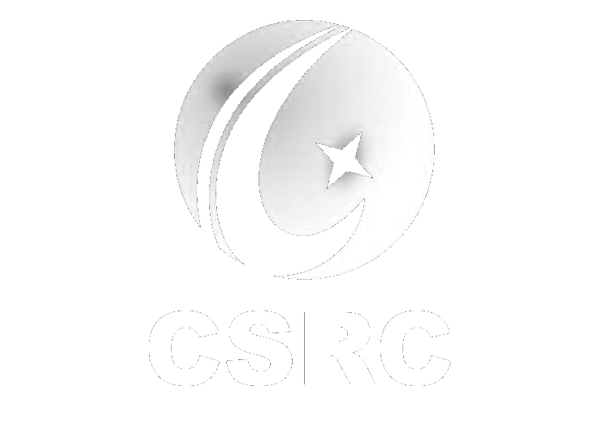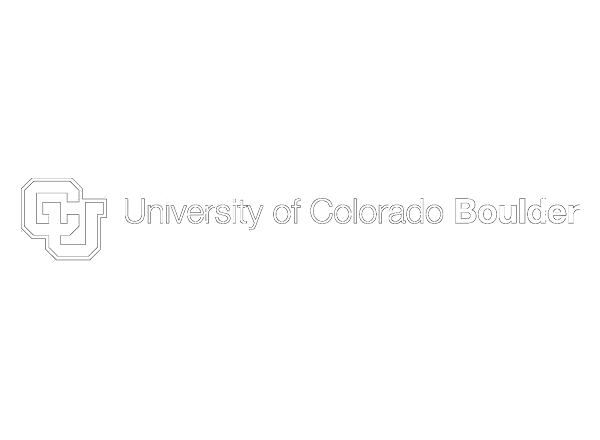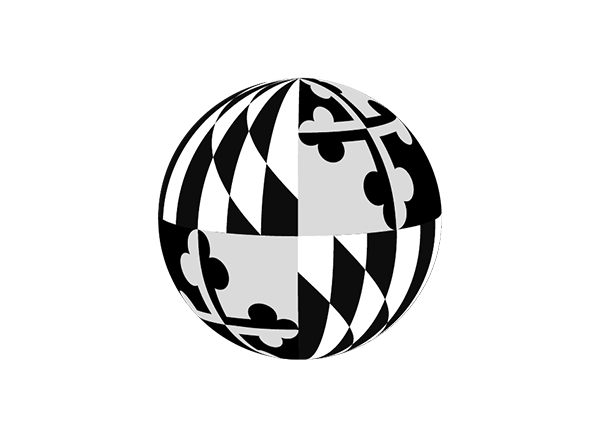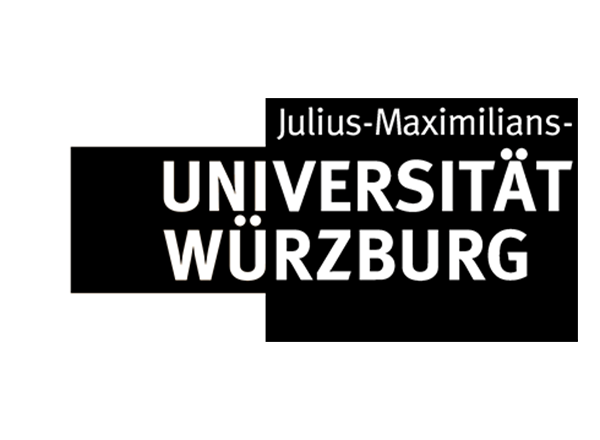Areas of impact
Knowledge
Shaping the scientific community and industry through groundbreaking innovations, technologies and discoveries.
Sustainability
Fostering a sustainable future for computing through energy-efficient technologies.
Capacity
Nurturing future leaders through training, mentoring and expanding research capabilities, expertise and networks.
Stem Ed
Making quantum and science accessible to schools, and fostering community through scientific outreach.
Innovation
‘beyond the laboratory’. Fostering creativity and exploring new ideas, encouraging different ways of doing things to create change.
Leadership
LEADERSHIP Pioneering a transformative workplace culture marked by inclusivity, family-friendly policies, a strong sense of community, transparency and collaboration
FLEET Timeline
FLEET was funded
Monash University has been awarded $33.4 million by the Australian Research Council (ARC) for the establishment of The ARC Centre of Excellence in Future Low-Energy Electronics Technologies. In total, nine ARC Centres of Excellence were approved for funding, with Monash leading or involved in five of them. Monash University Vice-Provost…
Read more
Developing the FLEET brand
We love the iconic FLEET logo, and so do our members, who have enjoyed wearing it on hoodies, T-shirts and face stickers, working it into scientific experiments, and outreach apparatus. What’s the secret of a great logo? For us, it was involving a large team, being clear about what we…
Read more
FLEET Homescience experiments launched
FLEET wants to make science more accessible to the wider community, and we want to help build a passion for science in the young Australians who will be the country’s future great scientists and engineers. We encourage families to do activities at home that foster a love for science from…
Read more
Liquid-metals once-in-a-decade advance in 2D materials deposition
A variety of methods exist to deposit atomically-thin (two-dimensional) crystals. But large-scale deposition has remained a challenge. However a recent RMIT-led study has found success with a new technique with potential to open new doors for two-dimensional semiconductors. The discovery has been described as a ‘once-in-a-decade’ advance. The new technique…
Read more
First topological transistor from Na3Bi
Applying an electric field switches conduction mode of a topological material FLEET researchers achieved a significant landmark in the search for a functional topological transistor in 2017, using an applied electric field to switch the electronic conduction mode of a topological material. A ‘gate’ electrode was used to switch the…
Read more
New quantum-gas microscope facility
Bridge between microscopic and macroscopic behaviour A new quantum-gas microscope facility at Swinburne University of Technology will allow studies of ultra-cold atomic gases, giving researchers the ability to image and manipulate single atoms. The facility will allow study of quantum effects at a macroscopic scale: a major unsolved issue in…
Read more
Visit by Nobel Laureate Wolfgang Ketterle
Nobel physics laureate Prof Wolfgang Ketterle told a crowd of around 200 at Swinburne University of Technology last week about Bose-Einstein condensates (BECs), and other strange states of matter that exist at nano-Kelvin temperatures, which open a new door to the quantum world where particles behave as waves and ‘march…
Read more
New fabrication facilities for van-der-Waals heterostructures
Nanostructure fabrication to support FLEET research FLEET’s research to achieve zero-dissipation electrical current depends on the design of key nanoscale structures. In 2017, Research theme B leader Lan Wang, and PhD student Cheng Tan, developed a method to build such nanoscale structures, required to achieve zero- dissipation electrical current. These…
Read more
FLEET’s superconducting Mobius strip makes its first appearance
A super-cooled, superconducting Mobius-track impresses the crowds, helps embed FLEET science As a cool science demo, FLEET’s superconductor Mobius track ticks all the boxes: liquid nitrogen – tick. Superconductor – tick. Cool shape – tick. Relevance to the science – tick tick tick. The track features 1500 neodymium magnets, fixed…
Read more
Centre Launch
Our insatiable appetite for computing means ITC already consumes 5–8% of global electricity, and is doubling each decade. At the launch of a new Australian Research Council Centre of Excellence the audience heard that efficiency gains in current, silicon-based technology are running out. FLEET seeks new, ultra-low energy electronics using…
Read more
‘Negative mass’ clarified
A FLEET study led by University of Queensland’s David Colas clarifies recent studies of negative mass, investigating the strange phenomenon of self-interference. NEGATIVE MASS?? When we think of ‘mass’, we usually consider the ‘inertial’ mass – the resistance of a body to acceleration due to an applied force. For a…
Read more
First snapshot of exciton-polariton BEC in inorganic semiconductor
First snapshot of exciton-polariton Bose-Einstein condensation (BEC) in an inorganic semiconductor Unique opportunity to understand details of BEC without statistical averaging Key to fundamental understanding of exciton-polaritons An ANU advance provides never-before-achieved ‘snapshot’ of Bose-Einstein condensation. Previously, observations of exciton-polaritons in a Bose-Einstein condensate were limited to statistical averaging over…
Read more
First large-scale 2D piezoelectric material deposition
First ever large-scale 2D surface deposition of piezoelectric material Simple, inexpensive technique opens new fields for piezo-sensors & energy harvesting Study authors, from left: Kouresh Kalantar-zadeh, Azmira Jannat, Nitu Syed, Torben Daeneke Researchers have developed a revolutionary method to ‘print’ large-scale sheets of two dimensional piezoelectric material, opening new opportunities…
Read more
ICON2DMat international conference hosted
FLEET hosted the International Conference on Two-Dimensional Materials and Technologies (ICON-2DMat) in Melbourne in December 2018. This was the first time ICON-2DMat had been held in Australia, and with around 300 international and Australian delegates attending, it was an opportunity to showcase the strength of atomically-thin materials research in Australia.…
Read more
First electric-switched topological material, milestone towards topological electronics
Significant step toward future topological electronics The first electric field-switchable topological material Topological transistors would be an ultra-low energy , beyond CMOS solution to ICT energy use after the end of Moore’s Law Study authors (from left) Dr Mark Edmonds, James Collins and Prof Michael Fuhrer are in the School…
Read more
First Women in FLEET Fellowships offered
FLEET’s goal is to achieve 30% representation of women at all levels across FLEET. To begin to move towards this goal, we needed innovative approaches that would allow us to begin ‘shifting the dial’. One innovative initiative that has met with success was FLEET’s new women-only Fellowships, offered in multiple…
Read more
Melbourne Knowledge Week
Over a dozen FLEET researchers flew the flag for FLEET and future computing at the recent Melbourne Knowledge Week showcase. Reps introduced the public to ICT energy use, electromagnetism, superconductivity (via FLEET’s supercooled Mobius track) , and the mechanics of binary operations that underlie all modern computing, via the Centre’s…
Read more
First proof of 70-year-old turbulence theory
Seminal, seventy-year-old theory of turbulence experimentally verified for first time Applications range from Jupiter’s Great Red Spot to electron movement in superconductors Two Australian studies published this week offer the first proof of a 70-year-old theory of turbulence. “The studies confirm a seminal theory of the formation of large-scale vortices…
Read more
Observation of native ferroelectric material
In a paper released today in Science Advances, UNSW researchers describe the first observation of a native ferroelectric metal. The study represents the first example of a native metal with bistable and electrically switchable spontaneous polarization states – the hallmark of ferroelectricity. “We found coexistence of native metallicity and ferroelectricity…
Read more
Future Electronics unit begins at JMSS
Surveying and student interviews confirms success of future computing unit in encouraging girls/other students in physics Over the last three years FLEET has helped put ninety Year 10 students through a ‘Future electronics’ unit, in partnership with John Monash Science School (JMSS). As well as covering semiconductors, Moore’s Law and…
Read more
First observation of new class of materials, excitonic insulators
First observation of excitonic insulator New exotic state was first predicted in 1960s A University of Wollongong / Monash University collaboration has found evidence of a new phase of matter predicted in the 1960s: the excitonic insulator. The unique signatures of an excitonic insulating phase were observed in antimony Sb(110)…
Read more
Sydney Science Festival
There’s nothing like a strong dosage of outreach to get the ‘cats out of the box’ into the public sphere. The FLEET Centre of Excellence invests significant resources into science-outreach, aimed to inspire stronger engagement with science across all levels of the community, from primary and secondary school students to…
Read more
ICSCE international conference hosted
In January 2020 FLEET brought the 10th International Conference on Spontaneous Coherence in Excitonic Systems (ICSCE10) to Australia for the first time. Continuing this 15-year tradition from the global scientific community interested in various quantum phenomena, ICSCE10 was hosted at the Arts Centre Melbourne amidst smoke storms resulting from one…
Read more
Women in Leadership Australia training initiated
Four FLEET researchers have received partial Centre funding to attend Women & Leadership Australia Impact program: PhD student Bianca Rae Fabricante (ANU) PhD student Patjaree Aukarasereenont (RMIT) Diversity in FLEET fellow Dr Mengting Zhao (Monash) Research Fellow Dr Amelia Dominguez (Monash) “FLEET’s strategic priorities include developing the next generation of…
Read more
Ultra-high electron mobility unlocked in topological Dirac semimetals
An Australian-led study uses a scanning-tunnelling microscope ‘trick’ to map electronic structure in Na3Bi, seeking an answer to that material’s extremely high electron mobility. In studying the topological Dirac semimetal, the team found that exchange and correlation effects are crucial to electron speed, and therefore mobility, and thus to the…
Read more
Transpacific colloquium series launch
FLEET hosts an ongoing series of talks by US, Australian and European researchers presenting novel developments in condensed-matter and cold-atomic physics, enriching connections between physics communities across the globe. The US-Australia/EU ‘Transpacific’ Colloquium series | attendance is open to everyone. The series is organised by FLEET with the Centre’s host node …
Read more
Linkage grant follows discovery of record-efficiency thermoelectric in TI
new thermoelectric materials could unlock body-heat powered personal devices, such as wrist-watches A new University of Wollongong study overcomes a major challenge of thermoelectric materials, which can convert heat into electricity and vice versa, improving conversion efficiency by more than 60%. Current and potential future applications range from low-maintenance, solid-state…
Read more
Milestone toward low-energy electronics, encasing 2D semiconductors in ultrathin glass
Encasing fragile 2D materials in ultrathin gallium-oxide glass could allow integration into functional low-energy devices Two-dimensional (2D) semiconductors have emerged during the past decade as extremely promising for future electronic and optoelectronic devices. However, to unlock the significant potential of these fragile materials, we must first find a way to…
Read more
Applying machine learning to atomically-thin material characterisation
Applying machine learning to automated characterisation of atomically-thin materials Just as James Cameron’s Terminator-800 was able to discriminate between “clothes, boots, and a motorcycle”, machine-learning could identify different areas of interest on 2D materials. The simple, automated optical identification of fundamentally different physical areas on these materials (eg, areas displaying…
Read more
Topological insulators potential to reduce transistor switching energy by factor of four
Topological insulators can reduce transistor switching energy by a factor of four Defeating Boltzman’s tyranny, which puts a lower limit on operating voltage The theoretical study confirms a topological transistor would defeat Boltmann’s tyranny, a lower limit on operating energy New FLEET research confirms the potential for topological materials to…
Read more
Liquid Metal spin-off launch
The Liquid-metals spin-off company Liquid Metal Plus (LM+) initiated in 2020 with FLEET investigators Kourosh Kalantar-Zadeh (UNSW) and Dr Torben Daeneke (RMIT), together with Dorna Esrafilzadeh (UNSW), was launched in April 2021. Pushing print on flexible touchscreens Climate rewind: turning CO2 back into coal The company has two areas of…
Read more
New efficiencies in topological insulator bismuth-selenide
Harnessing massive Dirac fermions in dual-magnetic-ion-doped Bi2Se3 topological insulator showing extremely strong quantum oscillations in the bulk. Double doping induces a gap for the topological surface state. A University of Wollongong-led team across three FLEET nodes has combined two traditional semiconductor doping methods to achieve new efficiencies in the topological…
Read more
Diversity in FLEET recruitment
FLEET welcomes four new research fellows, working in disparate roles across the Centre and all contributing to the improved diversity that makes the Centre greater than the sum of its parts: Dr Emma Laird (UQ) Dr Yonatan Ashlea Alava (UNSW) Dr Mengting Zhao (Monash) Dr Grace Causer (Monash) The four…
Read more
Topological transistors added to IEEE International Roadmap
Topological transistors added to IEEE International Roadmap for Devices and Systems The IEEE semiconductor roadmap’s Beyond CMOS chapter features future digital logic technologies beyond the scaling limits of CMOS The remarkable advances in semiconductor technology (guided by the so-called ‘Moore’s Law’ over some six or seven decades) don’t just happen.…
Read more
Superfluids provide new insight into turbulence
Eddies in an exotic liquid known as a superfluid merge to form large vortices, analogous to how cyclones form in the turbulent atmosphere. The new research, by a team from The University of Queensland, EQUS and FLEET will be important for emerging technological applications of superfluidity, such as precision sensing.…
Read more
FLEET Translation Program launch
Over the course of Melbourne Knowledge Week last week FLEET volunteers engaged with around 300 visiting members of the public, talking about FLEET’s mission to ensure a sustainable future for computing, with some fun props to demonstrate electromagnetic forces and the role of quantum materials such as superconductors. The bright…
Read more
Designer heterostructure provides path to low-energy electronics
Designer heterostructure is a potential high-temperature QAHE, where a topological material is sandwiched between two ferromagnets A Monash University-led research team has discovered that a structure comprising an ultra-thin topological insulator sandwiched between two 2D ferromagnetic insulators becomes a large-bandgap quantum anomalous Hall insulator. Such a heterostructure provides an avenue…
Read more
Melbourne Knowledge Week
Over the course of Melbourne Knowledge Week last week FLEET volunteers engaged with around 300 visiting members of the public, talking about FLEET’s mission to ensure a sustainable future for computing, with some fun props to demonstrate electromagnetic forces and the role of quantum materials such as superconductors. The bright…
Read more
First in-person workshop in two years! UOW
FLEET’s annual workshop is our one opportunity each year for all Centre researchers to gather together and share research outcomes and progress. This year, #FLEET2022 will be held at the Aspire Event Centre, the Central building 230 Wollongong Innovation Campus, NSW. We look forward to seeing everyone IN PERSON this…
Read more
ECR working group delivers training workshop
FLEET early career researchers and students are taking charge of their professional training and development. For the 2022 FLEET Annual Workshop this month in Wollongong, the working group delivered a range of research development training sessions and created opportunities for their peers to think about future career prospects. FLEET2022 ECR…
Read more
First inSTEM equity and diversity conference
The inSTEM conference held in Brisbane 20-21 July, was a networking and career-development conference for people from marginalised or underrepresented groups in STEM, and their allies. The 2022 inSTEM was a partnership of ARC Centres of Excellence, industry transformation training centre and Australian Defence, recognising the wide recognition of improving…
Read more
FLEET primary-school quantum workshop piloted
A FLEET Primary School pilot workshop showed primary students can learn and conceptualize quantum physics and are adept at the Mexican wave. Meanwhile, 155 Hughesdale Primary School students got their first introduction to quantum physics. The year 5 and 6 students explored the quantum atomic model via role-playing activities, applying…
Read more
National Science Quiz co-hosted
Over 200 in-person audience members and more than 400 online contestants competed in this month’s National Science Quiz, co-presented by FLEET with a collaboration of nine research organisations. Return host ABC TV and radio presenter Charlie Pickering, who has hosted each NSQ since the inaugural edition in 2017, chaired two…
Read more
Novel, bound exciton-exciton-electron state IDed
Multidimensional coherent spectroscopy (MDCS) on monolayer WS2 reveals Fermi polaron interactions Phase-space filling drives new optical selection rules, where excitons compete for the same electron Identification of a novel, cooperatively-bound exciton-exciton-electron state Recent Australian-led research has provided a world’s first measurement of interactions between Fermi polarons in an atomically-thin 2D…
Read more
Novel engineering of a quantum supersolid
Can a solid be a superfluid? Bilayer excitons form a quantum supersolid A collaboration of Australian and European physicists predict that layered electronic 2D semiconductors can host a curious quantum phase of matter called the supersolid. The supersolid is a very counterintuitive phase indeed. It is made up of particles…
Read more
Surprise observation of negative mass in exciton polaritons
A surprise observation of negative mass in exciton-polaritons has added yet another dimension of weirdness to these strange light-matter hybrid particles. Dr Matthias Wurdack, Dr Tinghe Yun and Dr Eliezer Estrecho from the Department of Quantum Sciences and Technology (QST) were experimenting with exciton polaritons when they realised that under…
Read more
New process to engineer nanoscale arrays of conducting channels
A large collaboration of researchers led by the University of Wollongong has used nuclear techniques at ANSTO and other methods to develop a process to engineer nanoscale arrays of conducting channels for advanced scalable electronic circuitry. As reported in a paper in Nature Communications, investigators created patterns of topological surface edge states on…
Read more
Future Electronics Materials Research in Australia (FEMRA) workshop
FLEET is pleased to host the 2023 workshop on Future Electronic Materials Research in Australia – FEMRA2023 on 22-24 March 2023 at Monash Clayton, Level 4 Auditorium, Green Chemical Futures. The aim of this workshop is to discuss the potential ‘grand challenges’ that can be addressed by the electronic materials…
Read more
Cross-COE mentoring program launch
A new expanded mentoring network vastly increases the experience pool available for ECRs and others in 12 participating ARC Centres providing: structured mentoring with ongoing support and oversight access to a range of resources and peer-mentoring groups large, diverse pool of mentors and mentees for both researchers and professional staff.…
Read more
FLEET internship program launch
An exciting partnership between FLEET and APR-intern will fund new route to gain valuable ‘on the floor’ industry experience for FLEET PhD/Masters students, increasing job skills and leveraging Australian scientific expertise in industry, with funding supporting the placement of research students with industry partners. In addition to injecting fresh scientific…
Read more
Meet FLEET Industry-meets-science event
An audience of around 90 gathered for the Meet FLEET event at UNSW earlier this month, comprising researchers, industry representatives and others. A major aim of the event was to serve as a bridge, fostering connections while providing industry professionals and researchers the opportunity to delve into collaborative research and…
Read more
FLEET Legacy workshop, Gold Coast
FLEET members gathered in Surfer’s Paradise Queensland recently for the Centre’s final meeting. The FLEET Legacy Workshop celebrated seven years of transformative innovation, capacity building, and future STEM leaders development. Presentations by Governance Chairs, Centre leaders and early-career researchers covered research highlights across the Centre, as well as innovations in…
Read more
Better Futures Industry Challenge hackathon
Faster ways to respond to emergencies and ultra-sensitive quantum seismometers for earlier detection of earthquakes, were two ideas that emerged from teams of intrepid researchers from five Centres of Excellence who competed in the inaugural Better Futures Innovation Challenge to solve critical industry problems. Industry partners for the deep-tech hackathon…
Read more
TQ Transistors spin-off established
At TQ Transistors, we stand at the forefront of innovation, dedicated to revolutionizing the landscape of low-energy transistors. Our groundbreaking contribution to the field is the NC-TQFET, capable of surpassing current low-power transistors with an astounding improvement of over 10x in energy efficiency and 2x in switching speed. Led by…
Read more
FLEET Landing event / right now!
Since June 2017, FLEET has been dedicated to sustainably extending the information technology revolution into the future by developing energy-efficient electronic technologies. Through collaborative efforts and ground-breaking research, we have made substantial contributions to scientific progress and the advancement of electronic technology. FLEET’s impacts extend beyond the laboratory, changing the…
Read more
Case studies
02
/
05
Developing new science-outreach tools, making STEM more accessible
Areas of impact
More available soon.
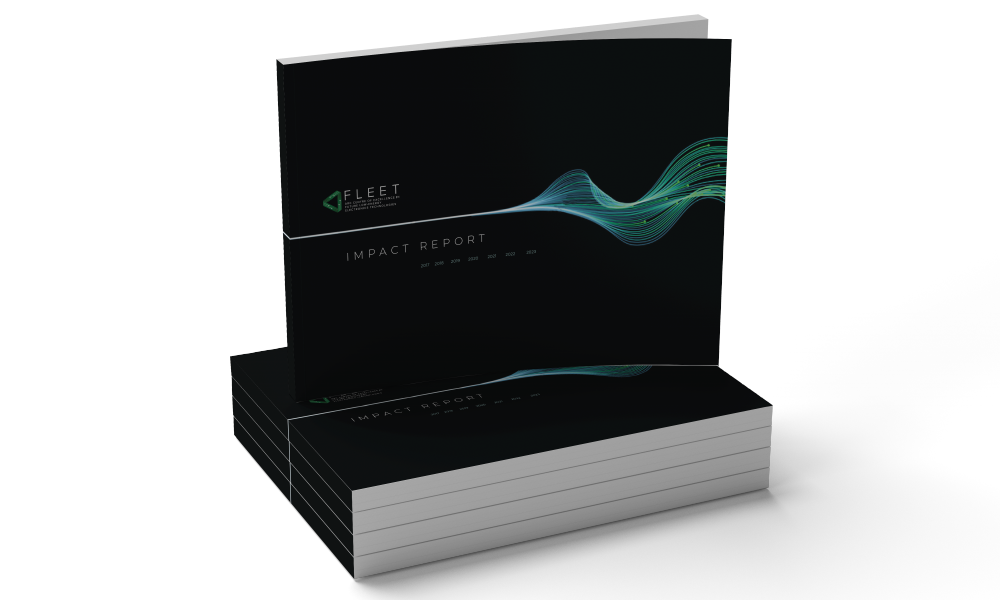
FLEET Impact Report
Comprehensive Impact Report available in September 2024
Watch this space.


